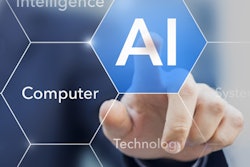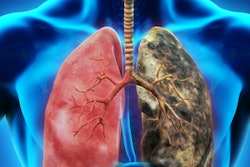
Artificial intelligence (AI) can augment the work of clinicians in five key areas: prognosis, diagnosis, treatment, workflow, and expanding the availability of clinical expertise, according to a review article published April 4 in the New England Journal of Medicine. But key challenges remain.
If done right in healthcare, AI could drastically reduce systemic glitches as well as decision-making errors by individual clinicians, according to co-authors Dr. Alvin Rajkomar and Jeffrey Dean, PhD, of Google, and Dr. Isaac Kohane, PhD, of Harvard Medical School. AI offers the potential that individual patient care could be informed by the wisdom contained in the decisions of nearly all clinicians and the outcomes of billions of patients.
"That is, every diagnosis, management decision, and therapy should be personalized on the basis of all known information about a patient, in real-time, incorporating lessons from a collective experience," the authors wrote.
They have identified five key areas where machine-learning models could augment the work of clinicians:
- Prognosis: Machine-learning models could learn to identify patterns predictive of outcomes based on vast numbers of already documented outcomes.
- Diagnosis: Machine learning could help identify likely diagnoses during clinical visits and raise awareness of possible future diagnoses based on a patient's profile and totality of previous laboratory test results, imaging tests, and other available data.
- Treatment: Machine-learning models can be "taught" to identify the optimal treatment for a given patient with a given condition based on vast datasets of treatment outcomes for patients with the same diagnosis.
- Clinical workflow: Machine learning could improve and simplify current electronic medical record tasks, enabling physicians to spend more time with patients.
- Expanding access to clinical expertise: AI algorithms have the ability to improve access to care for patients living in remote geographic locations or regions with a scarcity of medical specialists.
Key challenges remain, however, including the paucity of high-quality clinical data -- encompassing ethnically, racially, and otherwise diverse populations; such data are needed to train optimal algorithms, according to the authors. Other challenges include technical hurdles such as the current separation of clinical data across and within institutions. This issue could perhaps be addressed by patient-controlled databases, the authors noted. Different legal requirements and a mishmash of technical platforms across health systems and technology providers could also compromise access to training data.
The authors also emphasized their belief that the patient-doctor relationship will be enriched -- rather than replaced -- by additional insights from machine learning.
"We expect a handful of early models and peer-reviewed publications of their results to appear in the next few years, which -- along with the development of regulatory frameworks and economic incentives for value-based care -- are reasons to be cautiously optimistic about machine learning in healthcare," they concluded. "We look forward to the hopefully not-too-distant future when all medically relevant data used by millions of clinicians to make decisions in caring for billions of patients are analyzed by machine-learning models to assist with the delivery of the best possible care to all patients."




















